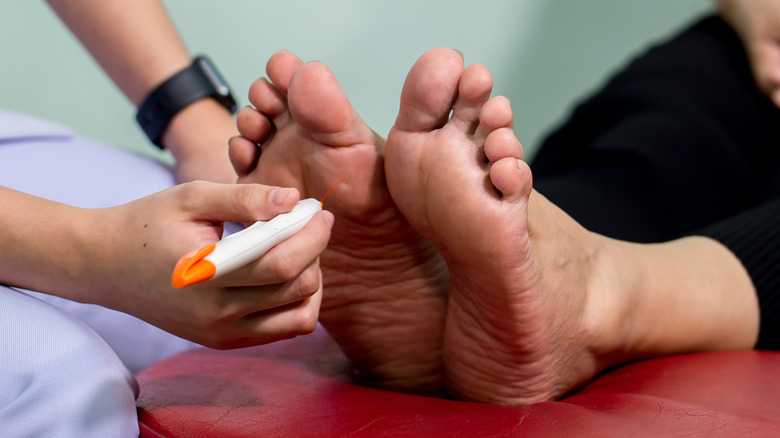What Happens If Diabetes Goes Untreated?
Diabetes is a chronic condition where your body either has difficulty metabolizing insulin, which controls your body's blood sugar levels, or it does not produce insulin at all. In type 1 diabetes, your body does not produce insulin, while in type 2 diabetes, your body does not process it correctly, according to the American Diabetes Association. People with type 1 diabetes often take insulin. Those with type 2 diabetes might take medication, but some may be able to manage their insulin levels with a healthy diet and exercise.
If you have been diagnosed with type 1 or type 2 diabetes, it is important to manage it properly. Along with taking your medication, exercising, losing extra weight, stopping smoking, and adding fiber to your diet can help you manage the condition. You should also have your A1C tested often by your doctor and your blood pressure checked at every visit, and your cholesterol should be checked yearly (via Johns Hopkins Medicine).
Uncontrolled diabetes can lead to several health problems
When you don't control diabetes, your body may have too much blood sugar. High levels of sugar in your blood can cause major complications and impact your blood vessels, eyes, heart, and kidneys, according to Verywell Health. You may also experience frequent urination because your body is working hard to flush the excess sugar from your bloodstream. Untreated diabetes can lead to diabetic retinopathy, which can result in blurred vision and eventually vision loss (via the Mayo Clinic). You can also develop gum disease by failing to manage diabetes. Uncontrolled blood sugar leads to higher sugar levels in the mouth, according to Cedars-Sinai.
Furthermore, diabetes can cause nerve damage in your feet, eyes, kidneys, and hands, according to the Centers for Disease Control and Prevention. In addition, it can also damage blood vessels and nerves in your ears, leading to hearing loss. In fact, hearing loss occurs in twice as many people diagnosed with diabetes compared to those who do not have it.


